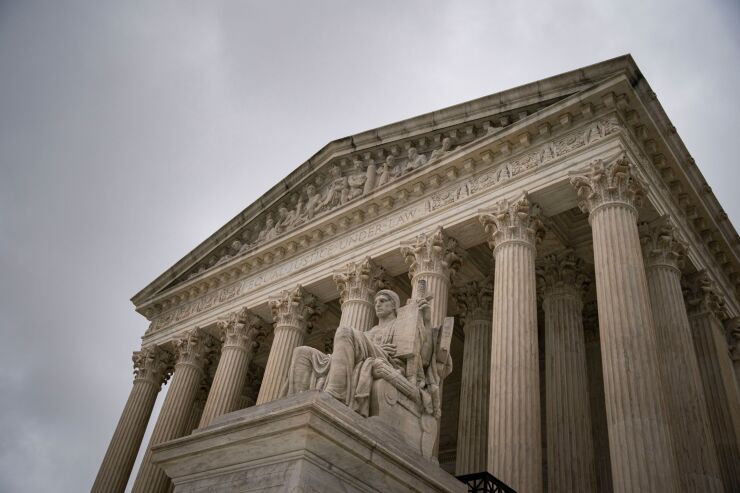
WASHINGTON — Last Friday the Supreme Court did the expected and tossed out a long-standing cornerstone of administrative law known as the Chevron doctrine, and in doing so charted a new course for the way regulators regulate and litigants litigate.
Chevron (decided
The immediate implications of the Loper Bright ruling may be somewhat limited, however. Ongoing legal challenges to the Consumer Financial Protection Bureau's
Banks have been waiting for this day for a long time, but have been constrained by either the fear of
It isn't that hard to appreciate why banks are interested in rolling back the power of the administrative state. Yes, there is the cynical view that banks want to make money and regulations represent costs that banks would rather not pay. But I think there is also a more principled objection at play, where bankers feel subjected to invasive supervisory and regulatory constraints that they are unable to oppose. It's about power, and on some level the idea of having regulators taken down a peg is enticing because they don't like being pushed around.
But there are longer-term implications for Loper Bright that I'm not sure the banking industry has fully considered, and that is that once the dismantling of the administrative state starts, it's hard to know exactly where it will end and why.
As it is, the processes and legal foundations of the banking regulatory apparatus are governed more by tradition and understanding
There is no doubt that regulators have expanded their powers in the last 20 years, most notably the Fed and the CFPB, and that has upset the balance and made some kind of pushback from the industry inevitable. But those powers have not been expanded for no reason — we did have a financial crisis not so long ago that exposed deep and critical weaknesses in the way that banks are regulated and supervised, necessitating new legislation and a more active role for regulators.
So while banks are optimistic about their ability to stop the CFPB from issuing its small-business rule or expanding the CRA to apply to mobile deposits, I wonder if they will be as enthusiastic about
One might say those kinds of unfavorable outcomes are unlikely and that the Supreme Court would never entertain far-out fringe theories. But the overturning of long-standing precedents
More to the point, defanged regulators are not very good at stopping problems before they start — and in the financial regulatory space, problems can get very messy very fast. Banks enjoyed a fairly hands-off regulatory environment from the mid-1990s until about 2010, and what came after that was a hard pendulum swing the other way.
I don't know for a fact that the demise of Chevron will lead to some kind of banking catastrophe, say, a decade down the road. What I can say is the overturning of Chevron will likely serve as a demarcation point in the history of banking administrative law, and nobody knows for sure what is going to come next — or whether it works better than what we have now.






